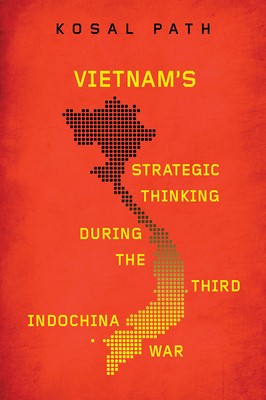
- We will send in 10–14 business days.
- Author: Kosal Path
- Publisher: University of Wisconsin Press
- ISBN-10: 0299322742
- ISBN-13: 9780299322748
- Format: 15.2 x 22.9 x 1.7 cm, minkšti viršeliai
- Language: English
- SAVE -10% with code: EXTRA
Vietnam's Strategic Thinking During the Third Indochina War (e-book) (used book) | bookbook.eu
Reviews
Description
When costly efforts to cement a strategic partnership with the Soviet Union failed, the combined political pressure of economic crisis at home and imminent external threats posed by a Sino-Cambodian alliance compelled Hanoi to reverse course. Moving away from the Marxist-Leninist ideology that had prevailed during the last decade of the Cold War era, the Vietnamese government implemented broad doi moi ("renovation") reforms intended to create a peaceful regional environment for the country's integration into the global economy.
In contrast to earlier studies, Path traces the moving target of these changing policy priorities, providing a vital addition to existing scholarship on asymmetric wartime decision-making and alliance formation among small states. The result uncovers how this critical period had lasting implications for the ways Vietnam continues to conduct itself on the global stage.
EXTRA 10 % discount with code: EXTRA
The promotion ends in 22d.00:56:19
The discount code is valid when purchasing from 10 €. Discounts do not stack.
- Author: Kosal Path
- Publisher: University of Wisconsin Press
- ISBN-10: 0299322742
- ISBN-13: 9780299322748
- Format: 15.2 x 22.9 x 1.7 cm, minkšti viršeliai
- Language: English English
When costly efforts to cement a strategic partnership with the Soviet Union failed, the combined political pressure of economic crisis at home and imminent external threats posed by a Sino-Cambodian alliance compelled Hanoi to reverse course. Moving away from the Marxist-Leninist ideology that had prevailed during the last decade of the Cold War era, the Vietnamese government implemented broad doi moi ("renovation") reforms intended to create a peaceful regional environment for the country's integration into the global economy.
In contrast to earlier studies, Path traces the moving target of these changing policy priorities, providing a vital addition to existing scholarship on asymmetric wartime decision-making and alliance formation among small states. The result uncovers how this critical period had lasting implications for the ways Vietnam continues to conduct itself on the global stage.


Reviews